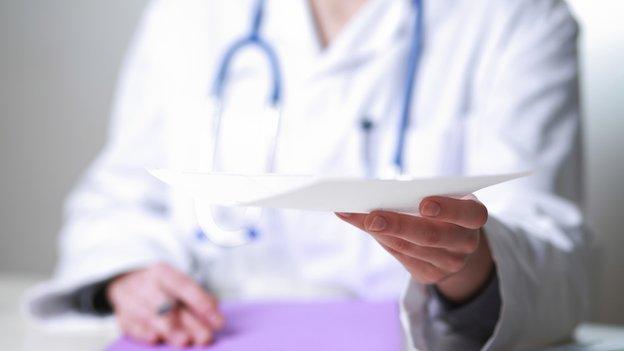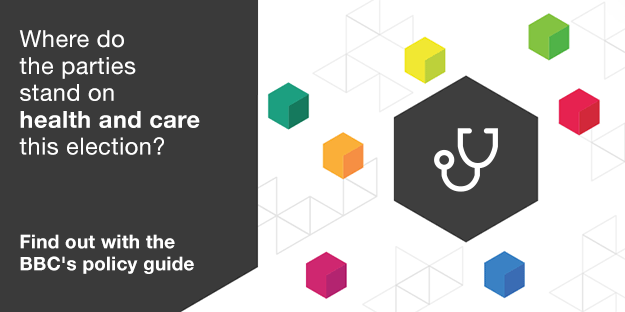The NHS - reality returns after polling day
- Published

The NHS will be one of the main priorities for the next government
There is a strange lull in the debate over the NHS.
The parties have set out their stalls, including the billions of pounds more they would invest in health if elected.
But the political sparring has eased off. There is a sense that the future of the NHS is on hold till 8 May.
There is no doubting the salience of the issue in this campaign.
A poll by Ipsos MORI, with unprompted responses on the most important issues to voters, put the NHS even further ahead of the economy and immigration - and up 9% to 47% over the last month. This looks like the highest reading since the last election.
But leading health opinion formers appear concerned that the debate on health has missed the central point - the immediate funding squeeze.
Chris Ham of the King's Fund and Nigel Edwards of Nuffield Trust in a joint open letter this week said all parties should spell out when hard cash would be made available to deal with what they called a "growing black hole".
Ham and Edwards criticised parties for promising big increases in staffing or seven-day working without committing to more than the bare minimum of extra cash required to maintain standards of care.
They called for a "dose of realism".
Time is 'pressing'
The British Medical Journal (BMJ) has warmed to the same theme. Its open letter to whoever is health secretary after the election says the NHS in England is "stretched to breaking point".
Finances have been "cut to the bone" says the BMJ, and patient safety could be at risk.
There has been a period of silence from the head of NHS England Simon Stevens. He is scrupulously following the Whitehall rules of "purdah" and keeping his head down during an election campaign.
But I understand he wants to quickly put down a marker once a new government is formed, which could of course be well into May.
Mr Stevens will want to let the post-election health secretary and other ministers know that time is pressing with the task of achieving £22bn of efficiency savings by 2020. New models of care need to be established quickly.
It seems likely he will let it be known that the £8 billion he asked for from Government by 2020 will be the absolute minimum needed to underpin the NHS.
Even more, it now appears, will be needed.
So serious are the challenges for the NHS over the next five years that some politicians are calling for an all-party agreement on the way forward.
The Liberal Democrat Norman Lamb is one. And the Conservative Jeremy Lefroy told me this week that he favoured a cross-party commission on health which might put options for the NHS to the public via a referendum, perhaps including raising taxes to fund investment.
The debate on health over the last few weeks may be quickly forgotten. The hard part and the reality check begins the day after polling day.
There is a growing sense that this campaign has not prepared the public for some turbulent times ahead.

- Published16 April 2015